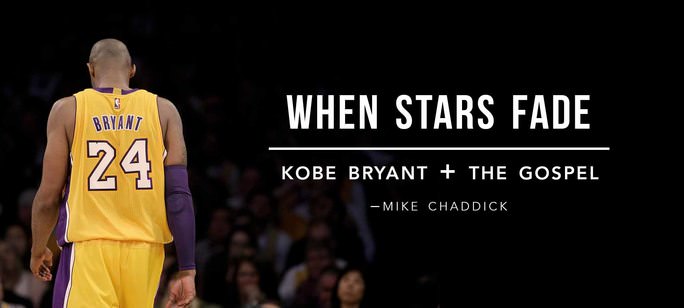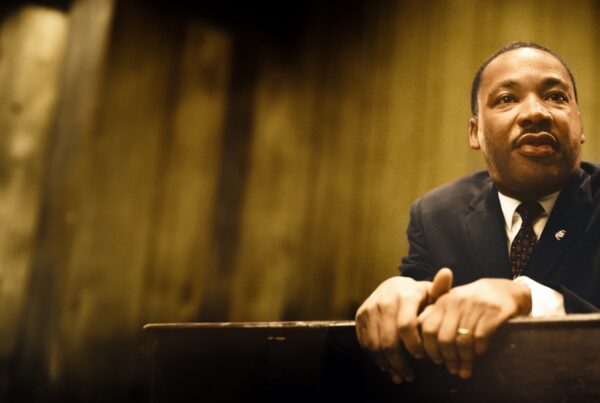
Even if you are not a big sports fan, this last Wednesday night (April 13th) was a momentous night.
I don’t keep up with sports the way I used to, but when I heard that Kobe Bryant’s legendary career with the Lakers was coming to an end, I just had to watch. I was torn, because just three clicks away on my satellite remote, I could’ve watched the Warriors beat the ’95-’96 Chicago Bulls (led by the legendary Michael Jordan, no less!) record of 72 wins in a season, which they did. But I chose to watch Kobe’s final game instead.
This is no surprise if you are a Lakers fan, what else would you do?! But I’m not. I never hated the Lakers, but I’ve never been a fan either (truth be told, I grew up in the San Francisco Bay Area and was a Warriors fan, go Dubs!). No, I chose to watch the game, because I wanted to see history happen. Or should I say more precisely, I wanted to watch the present BECOME history.
At this stage of my own life, I couldn’t help but be in a sense of awe and melancholy throughout the game, not just at Kobe’s final performance of 60 points (which, incidentally, set a new points record for a final game by an NBA player), but at slowly absorbing the fact that even the best, the brightest and the once youngest, fade from TV screen to memory. Everyone fades.
I asked myself, what is Kobe going to do after basketball? How is he going to handle the new reality that what he is most known for, and has come to identify himself as, will no longer be a living reality?
Of course, I’m not suggesting he will be forgotten tomorrow. He will be spoken of as long as the sport of basketball is around. But he cannot be watched as he once was. He will no longer compete against basketball’s greatest and tower over them. He will no longer receive the familiar shouts and applause and praise heaped upon week after week during the basketball season. No. Last night, in a moment, his career suddenly became a past tense.
It made me think about what any of us do with our lives, and what we do when we get to a certain point where we realize the best may be behind us.
Truth is, most of us never have, nor will be the very best in the world at what we do (this is why people love sports, they get to feel that somehow they too were the best, living vicariously through their favorite athletes). The hope for many is to keep on trying to be the best, hoping that if one day it becomes true, then perhaps we’d be secure in our identity forever. But Kobe’s final performance proved that that is not true. Not even for the best in the world. Even stars fade.
The moment Wednesday night’s game came to end, Kobe made the transition in memory from “he is the best” to “he was the best.” I actually think people like him may have a harder time dealing with transition in life than the average person. After all, how do you top off a career like that? You can’t. You simply try to enjoy things you were not able to along the way. Maybe spend more time with his family. I heard he’s starting a story company; using his money to try to secure a new meaningful identity and contribute to society in some other way. But make no mistake, he is not going to work because he needs the income (he has a net worth of $350 million!)… he needs the significance.
In the end, every human being, whether small or great, longs for significance. In the end, we will all realize that nothing we do lasts forever.
Before I suggest that what Kobe Bryant and every other human being needs is Christ, let me first say that becoming a Christian does not automatically cure, or fix, or meet or satisfy our need for significance. Becoming a Christian is not the end but only the beginning of living a life that lasts, a life of eternal significance. The truth is that in every believer, there is a struggle, a battle, between the flesh and the spirit. And we ought not to assume that because we DO a “Christian” activity, that that guarantees our identity and significance. It doesn’t.
Even as believers, as spouses, as parents, as workers, as artists, as evangelists, as pastors or church staff, we attempt to justify our own significance, as though significance is something we can achieve ourselves.
The secret to significance is to bathe in the reality that we can never achieve it. Significance is a gift. It is a gift, because Jesus was God’s gift to us. Significance is something that we were all given, when we first believed.
The perennial struggle for the Christian is that, after we first believe, we are tempted to believe that now, if we just do the right things, we can contribute to our significance. But we can’t believe that, and we mustn’t. Paul sternly warned the Christians at Galatia about this very thing. He declared, “How foolish can you be? After starting your new lives in the Spirit, why are you now trying to become perfect by your own human effort?” (Gal. 3:3).
From my time investing twenty hours per week into pastoral counseling at one of the largest churches in Orange County, over the period of five years (2007-2012), I can assure you that this is a problem that many, many Christians deal with. In fact, I would say that it is also the source of much sin in the church, though many would never diagnose it in this way. Whether its turning to drug and alcohol abuse, or adultery or just drowning one’s sense of insignificance in an escapism of some sort, many Christians (pastors included) have succumbed to the belief that significance comes through what you do.
This is how even church ministry itself can become the alluring mistress, tempting its workers to believe that their significance is in their ministry. But it is not. Even church ministers fade.
The moment you sense the pain and disappointment of your “best years” being behind, is the moment you should realize that things have been wrong for quite some time.
It is, and forever will be, God’s ministry to you and for you that bestows the significance you crave. And I would say, that the very place where we can experience this most, is not in public, but in private. It is not in your busyness for God, but in the quietness and stillness of God’s presence. It is experienced as you meditate and reflect on the presence of God’s love. It comes as you recognize the whole point of what observing Sabbath was supposed to communicate to the ancient Hebrews; and that is that ultimately nothing in all of Creation has come about by your doing.
Significance comes through resting in God’s work. Weariness and the sense of insignificance come through resting in your own work.
I would encourage you to take time every day, for a moment of silence and reflection on the Gospel. A time focused not about what you are doing for the Lord, or for anyone else. Take the time to welcome these words from the Lord as a life-giving word to you: “Come to me, all you that labor and heavy laden, and I will give you rest.” In other words, present yourselves to the Lord, you who are laboring to earn significance, and He will give it to you as a free gift.
It is not enough to be a star, even stars fade. It is the gift of God alone to shine with significance forever. But if we want true significance, we must receive the wisdom to know that only the Creator of the stars causes them to last forever. “Those who are wise will shine as bright as the sky, and those who lead many to righteousness will shine like the stars forever” (Daniel 12:3).









